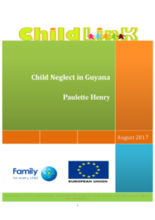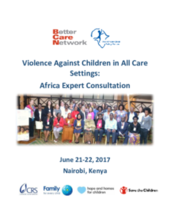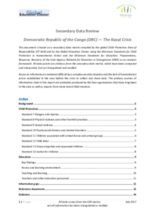Displaying 611 - 620 of 1070
This study investigated the incidence of maltreatment experienced by children living outside parental care, comparing the prevalence of abuse between children living with extended family, children living in institutional care, and children living or working on the street.
This report summarizes the findings from various studies investigating child sexual abuse within institutional care throughout Austria, Germany, and Switzerland and offers suggestions for future research and intervention.
This chapter from Child Maltreatment in Residential Care presents the key findings from the Bucharest Early Intervention Project (2003), a longitudinal randomized control study which revealed the immense developmental impact of the severe deprivation experienced by children placed in institutional care shortly after birth.
The 24 chapters of this book contain research examining the institutionalization of children, child abuse and neglect in residential care, and interventions preventing and responding to violence against children living in out-of-home care settings around the world.
This chapter in Child Maltreatment in Residential Care provides a brief history of congregate care in the United States and the experiences of maltreatment of children and youth within congregate care settings as they shifted over time.
This chapter of Child Maltreatment in Residential Care describes Interaction Competencies with Children – for Caregivers (ICC-C), a preventative intervention approach to improve the quality of care and reduce the incidence of maltreatment within institutional care settings in Sub-Saharan Africa.
This study analyzed the experiences of victimization by peers and staff of adolescents living in Israeli residential care settings.
This study, commissioned by ChildLinK, critically examines the factors of child neglect by caregivers in Guyana and offers recommendations for key stakeholders across various disciplines.
On 21-22 June 2017, the African Child Policy Forum and Better Care Network - with the support of Catholic Relief Services, Family for Every Child, Hope and Homes for Children and Save the Children - convened 40 leaders representing child rights bodies, regional economic communities, national governments and civil society in Nairobi, Kenya for the Africa Expert Consultation: Violence Against Children in All Care Settings.
This document is based on a secondary data matrix compiled by the global Child Protection Area of Responsibility (CP AoR) and by the Global Education Cluster using the Minimum Standards for Child Protection in Humanitarian Action and the Minimum Standards for Education: Preparedness, Response, Recovery of the Inter-Agency Network for Education in Emergencies (INEE) as an analysis framework.



